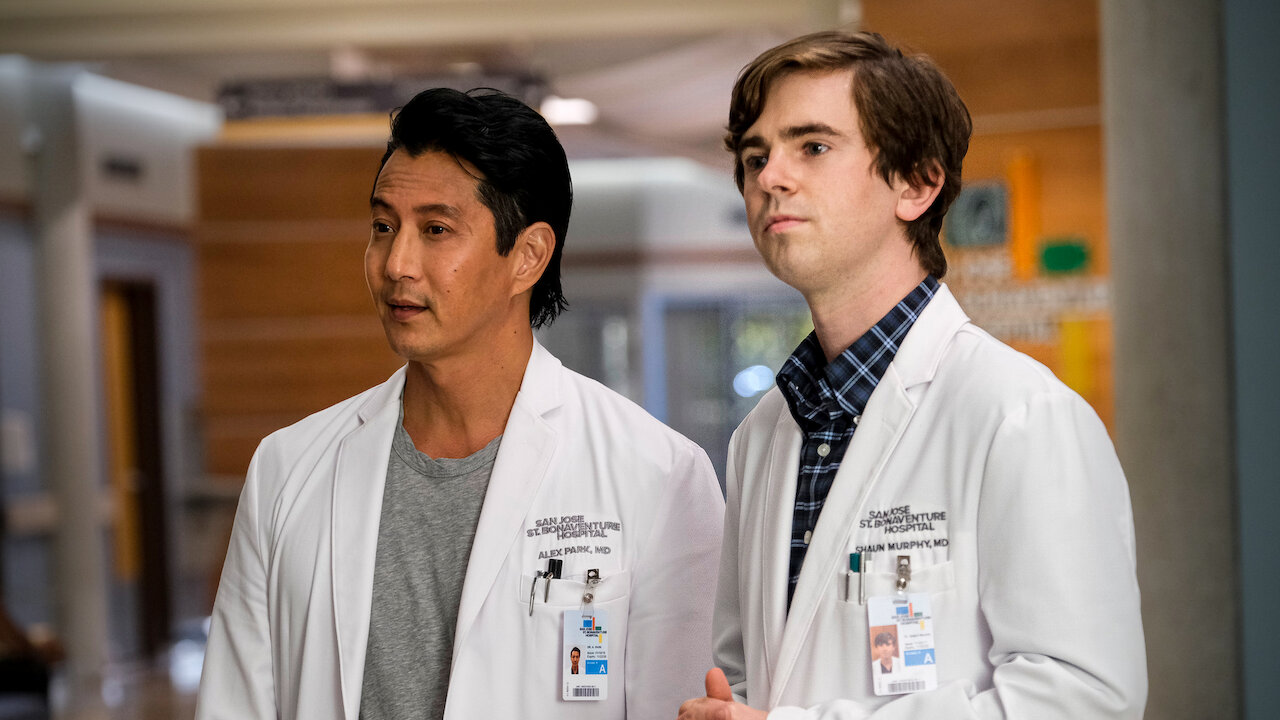Television often celebrates strength through stoicism — characters who grit their teeth, bottle their emotions, and charge ahead no matter the cost. But The Good Doctor, true to its beating heart, took a different route. In one quiet, tender moment, Dr. Glassman leaned in and whispered to Shaun, “It’s okay to be afraid.” And in doing so, he didn’t just comfort Shaun — he gave permission to millions of viewers to feel their fear too.
It wasn’t a scene designed for shock value. There were no flashing alarms or high-stakes surgeries. Instead, it unfolded in a small room filled with the weight of unspoken dread. Shaun was overwhelmed — by the uncertainty of a diagnosis, by the looming shadow of loss, by the terrifying realization that not everything can be solved with logic or skill. And just when the pressure felt unbearable, Glassman — mentor, father figure, and steady anchor — offered the one thing Shaun needed most: validation.

“It’s okay to be afraid.”
Those six words cracked open something deep. They weren’t just for Shaun. They were for anyone who has ever felt like fear made them weak, like anxiety was something to hide, or like vulnerability was something to be ashamed of. In that moment, The Good Doctor reminded us that even the strongest among us — even brilliant surgeons, caregivers, parents, and leaders — feel fear. And that’s not a flaw. That’s humanity.
This moment wasn’t just emotional — it was transformative.
Shaun, who often struggles with expressing and processing emotions, didn’t immediately respond. He sat still, his breathing uneven, his eyes wide. But something shifted in him. You could see it — the way his shoulders dropped, the way his hands slowly unclenched, the way he allowed himself to feel rather than fight it. That single moment of acceptance from Glassman created a safe space for Shaun to be human, not just exceptional.
And for the viewers watching at home — especially those carrying silent fears — it was like someone had finally reached through the screen and said, “I see you.”
The power of that scene lies in its intimacy. Dr. Glassman, played by the brilliant Richard Schiff, delivered the line with such quiet sincerity that it didn’t feel like a script. It felt like truth. Like a message we all needed to hear, especially in a world that too often tells us to toughen up, push through, or suppress emotion to survive.
“It’s okay to be afraid” became the emotional heartbeat of the episode, echoing through every subplot. Whether it was a patient confronting a terrifying prognosis, a colleague doubting their abilities, or Shaun wrestling with his fear of loss and failure — this theme tied every thread together. And it resonated deeply because fear is universal. But rarely is it embraced so openly on screen.
What makes this episode unforgettable isn’t just what was said — but what it meant. It redefined strength. Not as something loud or invincible, but as something real. Strength is crying in a hospital hallway and still showing up. Strength is asking for help. Strength is saying, “I don’t know what’s going to happen,” and choosing to love, to hope, and to keep going anyway.





